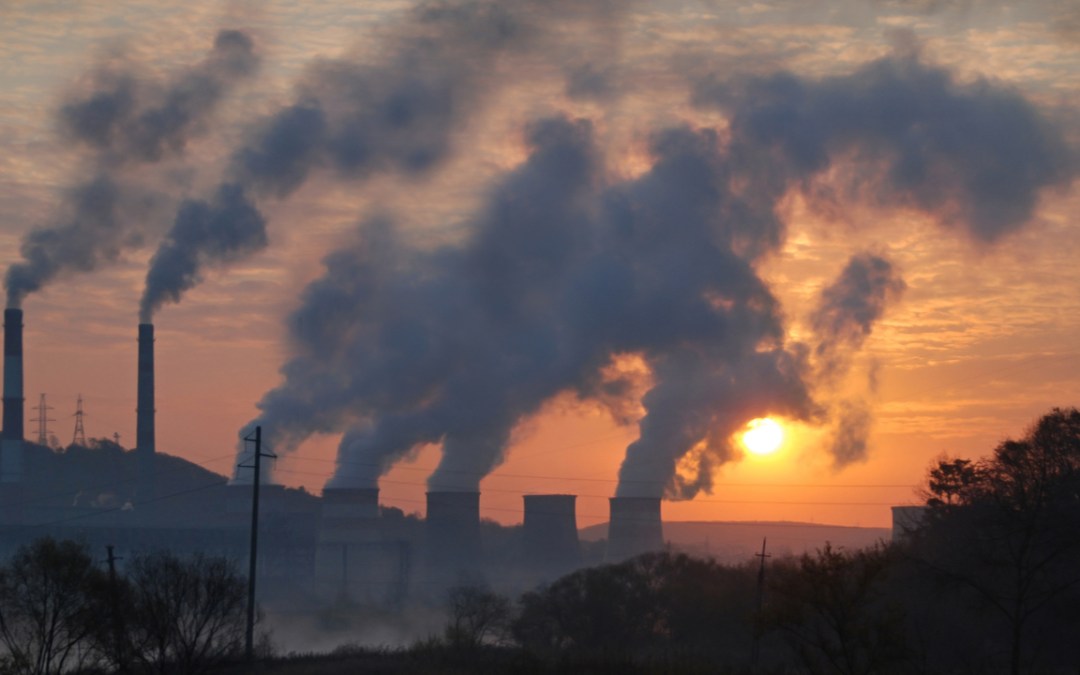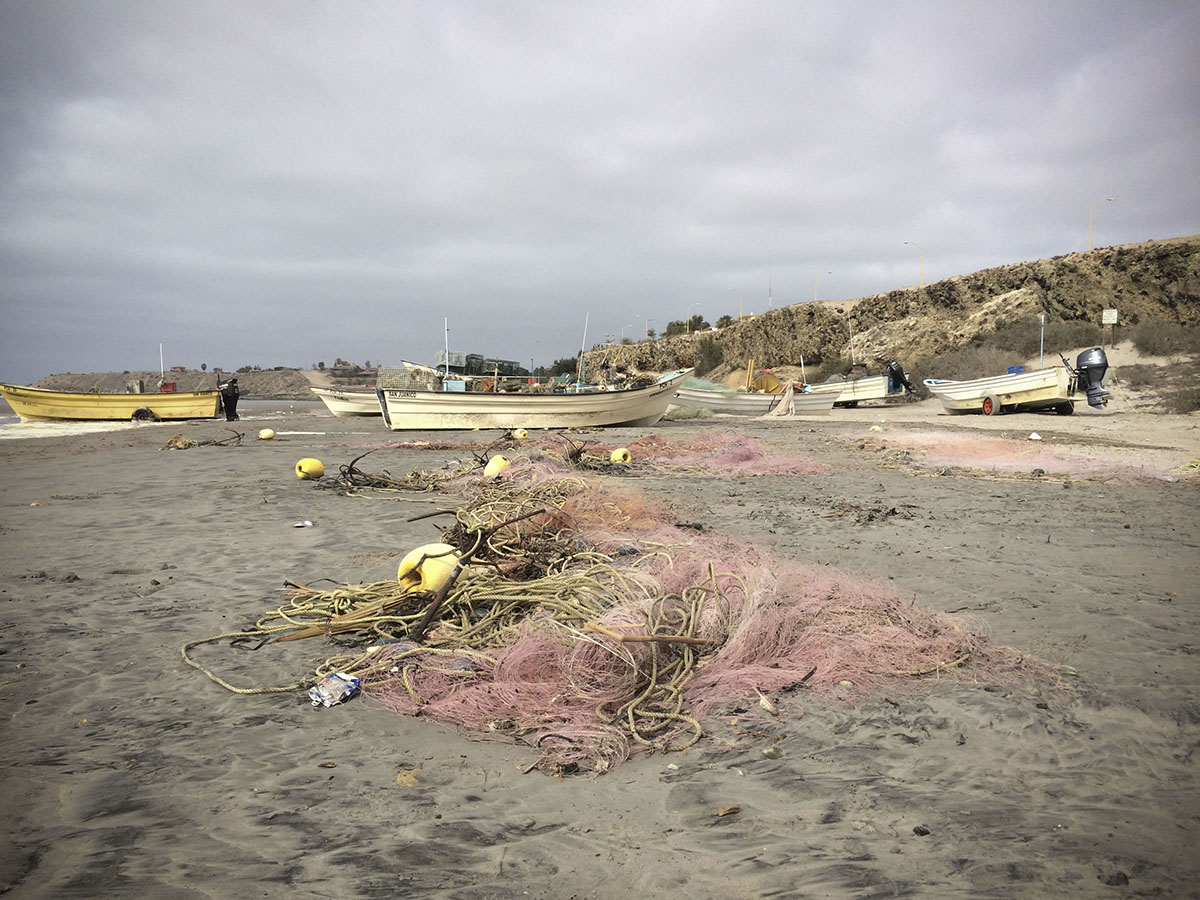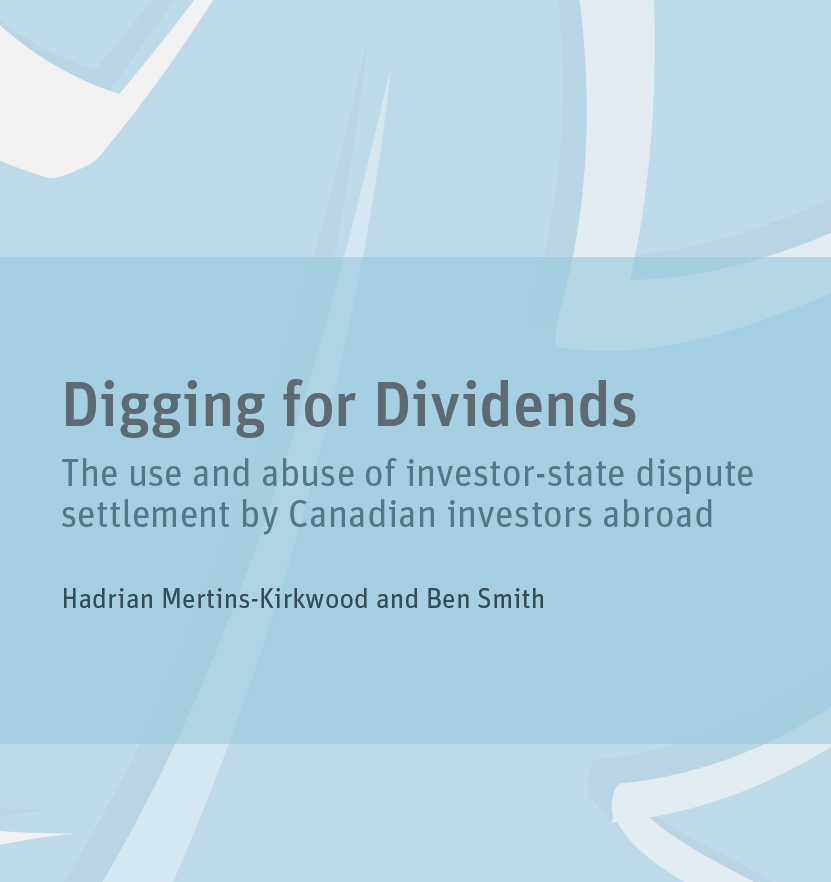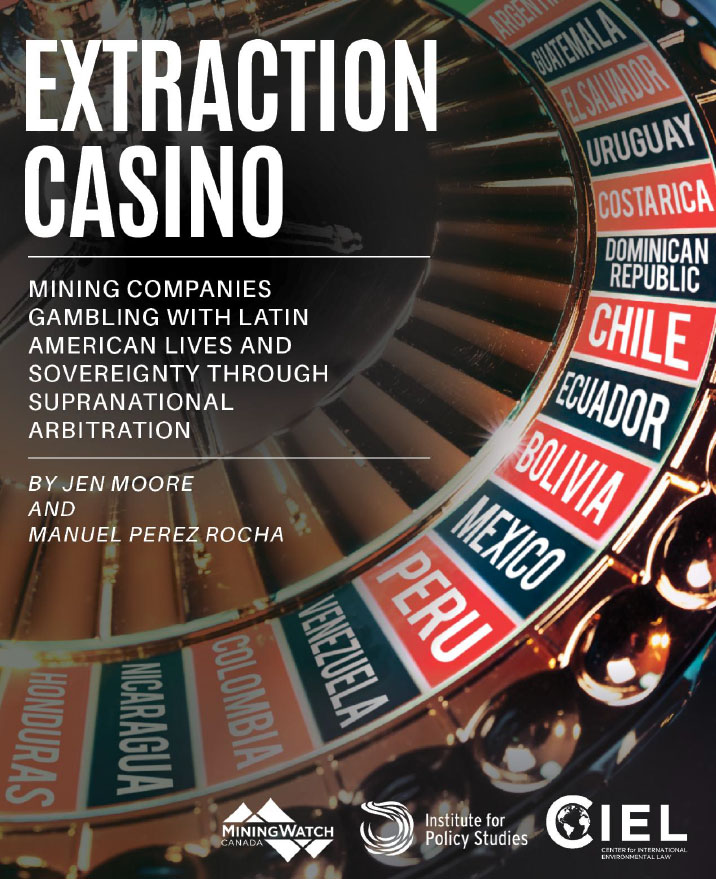- Details
-
Category: FTAs & ISDS
-
Published: Thursday, 23 July 2020 16:29
By Manuel Perez Rocha - Foreign Policy in Focus
Wealthy corporations may use trade courts to keep public health measures from cutting into their profits.
 The country was in freefall. Formerly middle class families were hawking their valuables on the street. After dark, the most desperate would search through garbage cans for food.
The country was in freefall. Formerly middle class families were hawking their valuables on the street. After dark, the most desperate would search through garbage cans for food.
That was Argentina in 2002. In that dark hour, as Argentine officials scrambled to lessen the pain of a deep economic crisis on average citizens, the last thing they needed was a barrage of corporate lawsuits. But thatŌĆÖs what they got.
Read more ...
- Details
-
Category: FTAs & ISDS
-
Published: Sunday, 03 May 2020 12:43
Manuel Perez Rocha - Inequality
 NAFTA 2.0 cleared another hurdle on January 16 as the U.S. Senate approved the trade deal with bipartisan support.
NAFTA 2.0 cleared another hurdle on January 16 as the U.S. Senate approved the trade deal with bipartisan support.
Officially called the United States-Mexico-Canada Agreement (USMCA), the pact has some improvements but remains a handout to large corporations.
This is particularly evident in the USMCA rules related to investor rights. One of the most controversial aspects of the original NAFTA was that it allowed private corporations to sue governments in international tribunals, demanding compensation for alleged violations of a wide range of investor ŌĆ£rights.ŌĆØ Corporations have used these rules repeatedly to demand compensation for environmental protections and other public interest laws and regulations that reduce the value of their investments.
Read more ...
- Details
-
Category: FTAs & ISDS
-
Published: Tuesday, 24 September 2019 15:22
by Daniela Pastrana: Pie de Pagina
 Foto: Celia Guerrero /Archivo Pie de PaginaThis is not fiction: an American company dedicated to finding treasures at the bottom of the sea has partnered with Altos Hornos de M├®xico to exploit an underwater mine in Baja California Sur and extract phosphorus. The Ministry of Environment denied the Environmental Impact Study due to the risk it generates for biodiversity, especially for the loggerhead turtle. Now, the mining company seeks compensation from the Mexican State for more than 3.5 billion dollars for its losses and has filed a formal complaint with an international trade court alleging that Secretariat of Environment and Natural Resources, SERMANAT, violated Chapter XI of the North American Free Trade Agreement.
Foto: Celia Guerrero /Archivo Pie de PaginaThis is not fiction: an American company dedicated to finding treasures at the bottom of the sea has partnered with Altos Hornos de M├®xico to exploit an underwater mine in Baja California Sur and extract phosphorus. The Ministry of Environment denied the Environmental Impact Study due to the risk it generates for biodiversity, especially for the loggerhead turtle. Now, the mining company seeks compensation from the Mexican State for more than 3.5 billion dollars for its losses and has filed a formal complaint with an international trade court alleging that Secretariat of Environment and Natural Resources, SERMANAT, violated Chapter XI of the North American Free Trade Agreement.
In January, the Mexican government received notification of the intention to sue by Odyssey Marine Exploration, Inc. (Odyssey) for the cancellation of the Don Diego project, under Chapter XI, on investment, of the North American Free Trade Agreement (NAFTA).
And on April 5, according to documents in the Ministry of Economy, Odyssey presented ŌĆ£on its behalf and on behalf of the Mexican company Exploraciones Oce├Īnica S. de R.L. from C.V. (ExO)ŌĆØ a ŌĆ£Notice of Arbitration (NOA) ŌĆØ. That is, the claim for which it demands compensation for 3,540 million dollars for loss of investment.
Read more ...
- Details
-
Category: FTAs & ISDS
-
Published: Sunday, 05 May 2019 14:08
Ben Smith : Behind the Numbers
 (DOWNLOAD THE STUDY HERE)Of the limited changes made to the renegotiated NAFTA agreementŌĆöalso known as the USMCAŌĆöperhaps the most significant relates to the system of investor protections that permits foreign firms to challenge government policies, laws and court decisions through private arbitration.Under the USMCA, this investor-state dispute settlement (ISDS) system will no longer apply to Canada, and only a limited version will remain in place between the U.S. and Mexico.
(DOWNLOAD THE STUDY HERE)Of the limited changes made to the renegotiated NAFTA agreementŌĆöalso known as the USMCAŌĆöperhaps the most significant relates to the system of investor protections that permits foreign firms to challenge government policies, laws and court decisions through private arbitration.Under the USMCA, this investor-state dispute settlement (ISDS) system will no longer apply to Canada, and only a limited version will remain in place between the U.S. and Mexico.
The overdue removal of ISDS from NAFTA is rightfully being celebrated by Canadians. Even CanadaŌĆÖs foreign minister said the removal of ISDS ŌĆ£strengthened our governmentŌĆÖs right to regulate in the public interest, to protect public health and the environment.ŌĆØ
Outside of North America, however, the story is different. Canada is still part of dozens of economic agreements that include the ISDS system. As our new report, Digging for Dividends,shows, Canadian investors have frequently used the ISDS system to pursue their commercial interests abroadŌĆötoo often to challenge responsible government policies taken in the public interest in developing countries.
A common narrative runs through many of these cases: a Canadian mining company uses ISDS to challenge the environmental policies of a developing country over their alleged harm to its investment. For example, rulings by the Colombian Constitutional Court to protect wetlands that are the source of the countryŌĆÖs precious freshwater have triggered a spate of ISDS claims under the Canada-Colombia Free Trade Agreement. These, and similar cases, have sparked growing concerns over the ability of governments in the Global South to act decisively on serious environmental issues such as climate change.
Read more ...
- Details
-
Category: FTAs & ISDS
-
Published: Friday, 03 May 2019 14:19
We analyzed 38 multi-million dollar claims brought by the mining industry using ISDS and other investment protection laws; in over half, communities are fighting to protect Indigenous territory, water, and more.
 DOWNLOAD REPORT HEREA new report by the Institute for Policy Studies, MiningWatch Canada, and the Center for International Environmental Law, ŌĆ£Extraction Casino: Mining Companies Gambling with Latin American Lives and Sovereignty through Supranational Arbitration,ŌĆØ exposes how transnational mining companies file multi-million dollar suits against Latin American countries to challenge key laws and decisions protecting indigenous peoplesŌĆÖ rights, the environment, and community health. The companies examined used arbitration particularly where communities are engaged in struggles against the harmful extraction industry.
DOWNLOAD REPORT HEREA new report by the Institute for Policy Studies, MiningWatch Canada, and the Center for International Environmental Law, ŌĆ£Extraction Casino: Mining Companies Gambling with Latin American Lives and Sovereignty through Supranational Arbitration,ŌĆØ exposes how transnational mining companies file multi-million dollar suits against Latin American countries to challenge key laws and decisions protecting indigenous peoplesŌĆÖ rights, the environment, and community health. The companies examined used arbitration particularly where communities are engaged in struggles against the harmful extraction industry.
The report examines all 38 known cases that have been brought by mining companies against governments in Latin America with increasing intensity in the last two decades. They are suing for millions and billions of dollars as a result of court decisions, public policies, and other government measures that they claim reduce the value of their investments. In the majority of these cases, communities have been actively organizing to resist mining activities and defend their land, health, environment, self-determination, and ways of life.
Read more ...
- Details
-
Category: FTAs & ISDS
-
Published: Tuesday, 29 September 2015 14:05
The World Bank GroupŌĆÖs International Centre for Settlement of Investment Disputes
Robin Broad - Bretton Woods Project
 This briefing focuses on the main venue for settlement of legal cases brought by corporations against governments: the World BankŌĆÖs International Centre for Settlement of Investment Disputes (ICSID). It finds significant ICSID bias in favour of corporations and commercial interests by analysing ICSID overall and by looking at a specific case brought by a global mining corporation against El Salvador. READ MORE
This briefing focuses on the main venue for settlement of legal cases brought by corporations against governments: the World BankŌĆÖs International Centre for Settlement of Investment Disputes (ICSID). It finds significant ICSID bias in favour of corporations and commercial interests by analysing ICSID overall and by looking at a specific case brought by a global mining corporation against El Salvador. READ MORE
 The country was in freefall. Formerly middle class families were hawking their valuables on the street. After dark, the most desperate would search through garbage cans for food.
The country was in freefall. Formerly middle class families were hawking their valuables on the street. After dark, the most desperate would search through garbage cans for food.
 NAFTA 2.0 cleared another hurdle on January 16 as the U.S. Senate approved the trade deal with bipartisan support.
NAFTA 2.0 cleared another hurdle on January 16 as the U.S. Senate approved the trade deal with bipartisan support.


 This briefing focuses on the main venue for settlement of legal cases brought by corporations against governments: the World BankŌĆÖs International Centre for Settlement of Investment Disputes (ICSID). It finds significant ICSID bias in favour of corporations and commercial interests by analysing ICSID overall and by looking at a specific case brought by a global mining corporation against El Salvador.
This briefing focuses on the main venue for settlement of legal cases brought by corporations against governments: the World BankŌĆÖs International Centre for Settlement of Investment Disputes (ICSID). It finds significant ICSID bias in favour of corporations and commercial interests by analysing ICSID overall and by looking at a specific case brought by a global mining corporation against El Salvador.